Fiche Personne
Théâtre
Cinéma/TV
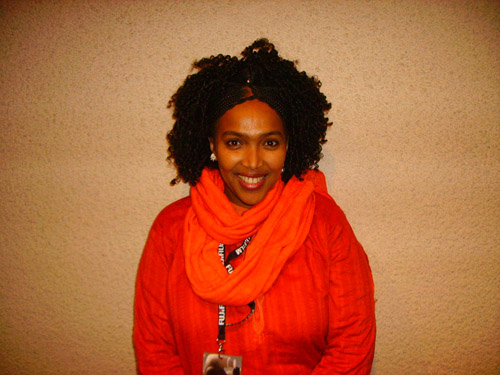 © DR
© DR
Maji-da Abdi
Réalisateur/trice, Producteur/trice, Directeur/trice de festival
Éthiopie
 © DR
© DR
Français
Maji-da Abdi est née en Éthiopie mais elle a grandi au Kenya puis au Canada avant de revenir dans son pays natal où elle a réalisé The river that divided (2001), un documentaire sur l’expérience des femmes dans la guerre en Éthiopie.
Par ailleurs productrice, elle a notamment produit Heremakono (2002), En attendant le bonheur (2003) et Bamako (2006) d’Abderrahmane Sissako. Elle est l’initiatrice du premier Festival international de courts-métrages en Ethiopie (première édition : avril 2010).
Par ailleurs productrice, elle a notamment produit Heremakono (2002), En attendant le bonheur (2003) et Bamako (2006) d’Abderrahmane Sissako. Elle est l’initiatrice du premier Festival international de courts-métrages en Ethiopie (première édition : avril 2010).
English
[…] Born in Diredawa [Ethiopia] on October 25, 1970, Maji grew up in Addis until she was 4, when her mother, by then divorced from her father, took her and her brother to Nairobi, Kenya, to escape the aftermath of the revolution that occurred in 1974. After completing primary and most of her secondary school in Nairobi, Maji moved to Canada for her 12th grade year and beyond, completing 12th grade in Montreal and 13th grade in Toronto and then enrolling in the University of Western Ontario in London, Ontario to study business and literature. Though she enjoyed her studies, she was acutely aware that most of the other students were hoping to land jobs on Wall Street in the investment business, but her interests lay elsewhere. Though she completed her degree in business, she also did an honors program in French literature, which she adored.
[…]
Mary-Jane Wagle
http://ethiopianwomenunleashed.org/profile_detail.php?PId=71
Maija-da Abdi was born in Ethiopia but raised in Kenya and later Canada, where she studied literature and business. She returns to her native Ethiopia in documentary films such as THE RIVER THAT DIVIDES (2001), which explores the wartime experiences of Ethiopian women. As a producer, Abdi has supervised many projects, including the multi-award-winning film HEREMAKONO by Mali’s Abderrahmane Sissako. She has also consulted with the African Union on African cinema and International Advisors 2008 – 2009 for Ethiopian Film Initiative. She established IMAGES THAT MATTER, the first short film festival in Ethiopia (14-19 April 2010).
Owner of the Paris-based production company Chinguetty Films with her partner Abderrahmane Sissako, they have produced multiple award-winning films’Bamako’ and’Waiting for Happiness’ by A. Sissako,’Abuna’ and’Daratt’ by Haroun m. Salleh among others. After her studies at the University of Western Ontario she worked for a Japanese T.V station 24HTV then returned to Ethiopia to produce various documentaries for European television. She directed the documentary’The river that divides’. Her first fiction production was the Ethiopian short film’The Father’ by Ermias Woldeamlak. She is also the east African regional representative for FEPACI (Federation of pan-African filmmakers).
___________
Mit der Regisseurin und Produzentin Maji-da Abdi ist eine Vertreterin der jungen Generation afrikanischer Filmemacher in der Jury vertreten (Berlinale 2004). In Äthiopien geboren, wuchs sie in Kenia und Kanada auf und kehrte in ihre Heimat zurück, um Dokumentarfilme zu drehen. Ihr Film « The River that Divides » (2001) berichtet von den Kriegserfahrungen äthiopischer Frauen. Als Produzentin betreute Maji-da Abdi u. a. den mehrfach prämierten Film « Heremakono » von Abderrahmane Sissako aus Mali
[…]
Mary-Jane Wagle
http://ethiopianwomenunleashed.org/profile_detail.php?PId=71
Maija-da Abdi was born in Ethiopia but raised in Kenya and later Canada, where she studied literature and business. She returns to her native Ethiopia in documentary films such as THE RIVER THAT DIVIDES (2001), which explores the wartime experiences of Ethiopian women. As a producer, Abdi has supervised many projects, including the multi-award-winning film HEREMAKONO by Mali’s Abderrahmane Sissako. She has also consulted with the African Union on African cinema and International Advisors 2008 – 2009 for Ethiopian Film Initiative. She established IMAGES THAT MATTER, the first short film festival in Ethiopia (14-19 April 2010).
Owner of the Paris-based production company Chinguetty Films with her partner Abderrahmane Sissako, they have produced multiple award-winning films’Bamako’ and’Waiting for Happiness’ by A. Sissako,’Abuna’ and’Daratt’ by Haroun m. Salleh among others. After her studies at the University of Western Ontario she worked for a Japanese T.V station 24HTV then returned to Ethiopia to produce various documentaries for European television. She directed the documentary’The river that divides’. Her first fiction production was the Ethiopian short film’The Father’ by Ermias Woldeamlak. She is also the east African regional representative for FEPACI (Federation of pan-African filmmakers).
___________
Mit der Regisseurin und Produzentin Maji-da Abdi ist eine Vertreterin der jungen Generation afrikanischer Filmemacher in der Jury vertreten (Berlinale 2004). In Äthiopien geboren, wuchs sie in Kenia und Kanada auf und kehrte in ihre Heimat zurück, um Dokumentarfilme zu drehen. Ihr Film « The River that Divides » (2001) berichtet von den Kriegserfahrungen äthiopischer Frauen. Als Produzentin betreute Maji-da Abdi u. a. den mehrfach prämierten Film « Heremakono » von Abderrahmane Sissako aus Mali
Films(s)
-
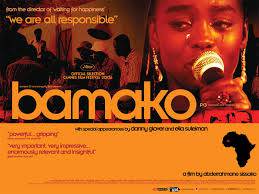 Bamako [dir. A. Sissako]Long-métrage – 2006Bamako. Melé est chanteuse dans un bar, son mari Chaka est sans travail, leur couple se déchire… Dans la cour de la maison qu’ils partagent avec d’autres familles, un tribunal a été installé. Des représentants de la so…Maji-da Abdi est lié(e) à ce film en tant que producteur/trice
Bamako [dir. A. Sissako]Long-métrage – 2006Bamako. Melé est chanteuse dans un bar, son mari Chaka est sans travail, leur couple se déchire… Dans la cour de la maison qu’ils partagent avec d’autres familles, un tribunal a été installé. Des représentants de la so…Maji-da Abdi est lié(e) à ce film en tant que producteur/trice -
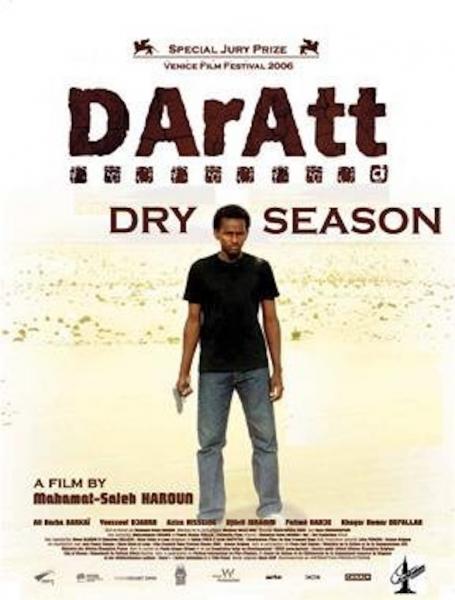 Daratt (Saison sèche)Long-métrage – 2006Tchad, 2006. Le gouvernement a accordé l’amnistie à tous les criminels de guerre. Atim, seize ans, reçoit un revolver des mains de son grand-père pour aller tuer l’assassin de son père… À seize ans, Atim part à la rec…Maji-da Abdi est lié(e) à ce film en tant que producteur/trice
Daratt (Saison sèche)Long-métrage – 2006Tchad, 2006. Le gouvernement a accordé l’amnistie à tous les criminels de guerre. Atim, seize ans, reçoit un revolver des mains de son grand-père pour aller tuer l’assassin de son père… À seize ans, Atim part à la rec…Maji-da Abdi est lié(e) à ce film en tant que producteur/trice -
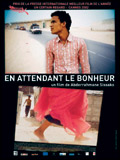 Heremakono – En attendant le bonheurLong-métrage – 2002Synopsis : Abdallah, un jeune garçon, retrouve sa mère à Nouadhibou, en attendant son départ vers l'Europe. Dans ce lieu d'exil dont il ne comprend pas la langue, il essaie de dé…Maji-da Abdi est lié(e) à ce film en tant que producteur/trice
Heremakono – En attendant le bonheurLong-métrage – 2002Synopsis : Abdallah, un jeune garçon, retrouve sa mère à Nouadhibou, en attendant son départ vers l'Europe. Dans ce lieu d'exil dont il ne comprend pas la langue, il essaie de dé…Maji-da Abdi est lié(e) à ce film en tant que producteur/trice -
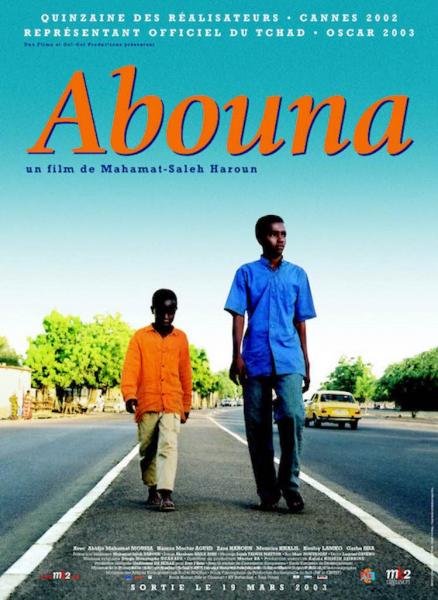 Abouna (Notre père)Long-métrage – 2002Tahir (quinze ans) et Amine (huit ans) se réveillent un beau matin et apprennent que leur père a quitté la maison. Pourquoi ? Ils l’ignorent. Ils sont d’autant plus déçus que ce jour là, le Père devait arbitrer un match …Maji-da Abdi est lié(e) à ce film en tant que producteur/trice
Abouna (Notre père)Long-métrage – 2002Tahir (quinze ans) et Amine (huit ans) se réveillent un beau matin et apprennent que leur père a quitté la maison. Pourquoi ? Ils l’ignorent. Ils sont d’autant plus déçus que ce jour là, le Père devait arbitrer un match …Maji-da Abdi est lié(e) à ce film en tant que producteur/trice -
 From the other Side of the RiverCourt-métrage – 2001Série Africa, Africas Les souffrances les plus intimes et les plus personnelles des femmes éthiopiennes vivant la quotidianité de la guerre.Maji-da Abdi est lié(e) à ce film en tant que réalisateur/trice
From the other Side of the RiverCourt-métrage – 2001Série Africa, Africas Les souffrances les plus intimes et les plus personnelles des femmes éthiopiennes vivant la quotidianité de la guerre.Maji-da Abdi est lié(e) à ce film en tant que réalisateur/trice -
 Africa, AfricasCourt-métrage – 2001Trois courts métrages documentaires qui examinent le décapage de la peau au Cameroun (Fantacocca), l’exil en Ethiopie (The River Between Us), et le chômage important au Burkina Faso (Laafi Bala). Trois épisodes sur les …Maji-da Abdi est lié(e) à ce film en tant que réalisateur/trice
Africa, AfricasCourt-métrage – 2001Trois courts métrages documentaires qui examinent le décapage de la peau au Cameroun (Fantacocca), l’exil en Ethiopie (The River Between Us), et le chômage important au Burkina Faso (Laafi Bala). Trois épisodes sur les …Maji-da Abdi est lié(e) à ce film en tant que réalisateur/trice -
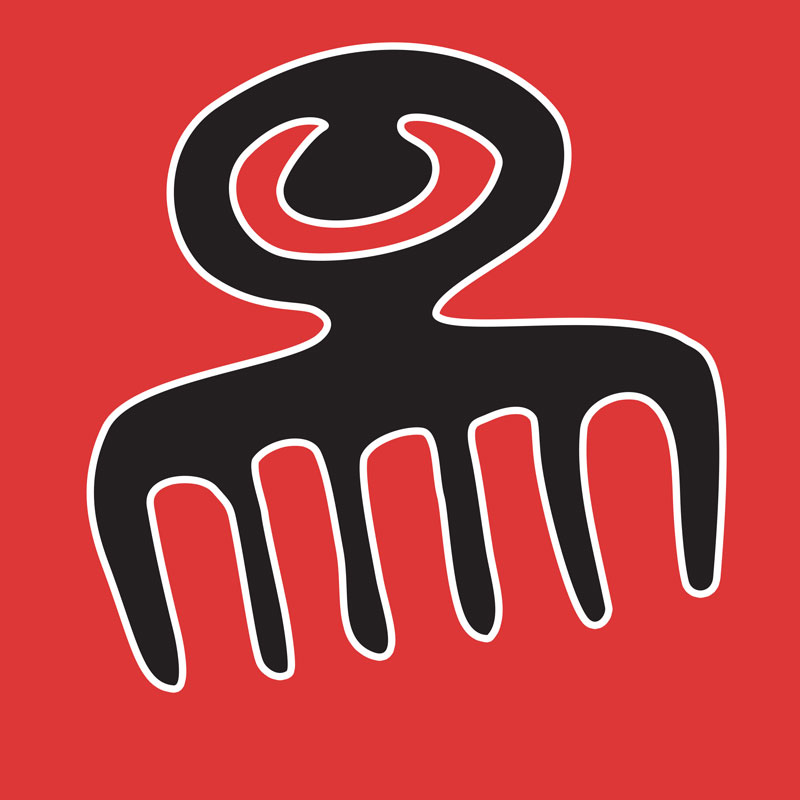 River that divided (The)– 2001La vie des femmes éthiopiennes confrontées à la guerre. de Maji-da AbdiMaji-da Abdi est lié(e) à ce film en tant que réalisateur/trice
River that divided (The)– 2001La vie des femmes éthiopiennes confrontées à la guerre. de Maji-da AbdiMaji-da Abdi est lié(e) à ce film en tant que réalisateur/trice -
 Father (The)Moyen-métrage – 2000Dans « The Father », le patriarche en question est en fin de compte la dictature militaire, qui terrorisa l’Ethiopie dans les années 70 et 80. Ce film fait partie de trois courts métrages de Tanzanie / Nigeria / Ethio…Maji-da Abdi est lié(e) à ce film en tant que producteur/trice
Father (The)Moyen-métrage – 2000Dans « The Father », le patriarche en question est en fin de compte la dictature militaire, qui terrorisa l’Ethiopie dans les années 70 et 80. Ce film fait partie de trois courts métrages de Tanzanie / Nigeria / Ethio…Maji-da Abdi est lié(e) à ce film en tant que producteur/trice
Partager :



